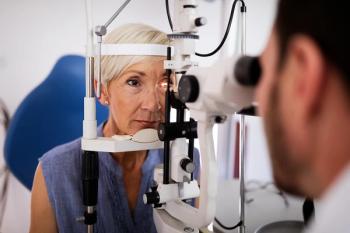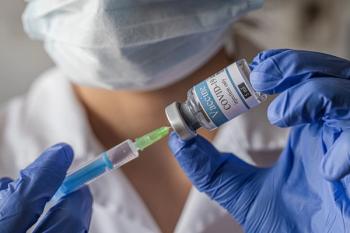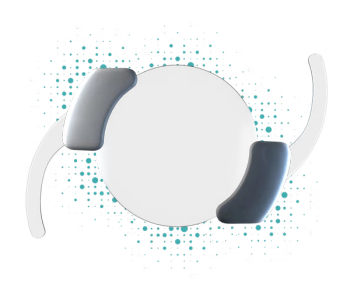
OKYO Pharma outlines plans for Phase 2 clinical trial of OK-101 in neuropathic corneal pain
The primary endpoint will be pain improvement as measured by visual analogue scale (VAS) compared to placebo.
OKYO Pharma has announced its plan to advance OK-101 into a phase 2 clinical trial of neuropathic corneal pain, expected to begin in Q3 of 2024.
The announcement of this trial follows the
OK-101 is a lipid conjugated chemerin peptide agonist of the ChemR23 G-protein coupled receptor, typically found on immune cells of the eye responsible for the inflammatory response.1
The Phase 2 trial will be conducted at a single center and will be a double-masked, randomized, 12-week placebo-controlled trial comparing OK-101 to placebo in 48 neuropathic corneal pain patients. The primary endpoint will be pain improvement as measured by visual analogue scale (VAS) compared to placebo. Five study visits over the 16 weeks are planned, including a follow-up visit 4 weeks after completion.1
The company stated in a press release that the trial is supported by “pre-clinical animal model data and statistically significant pain relief observed in OK-101’s first human trial recently conducted in dry eye disease (DED) patients.”
The DED, Phase 2 trial, showed superiority when compared to placebo in the sign endpoint of total conjunctival staining as measured by the Ora Calibra Staining Scale as early as Day 29. OK-101 also showed superiority when compared to placebo across at least 2 symptoms of DED including burning measured by the Ora Calibra 4-symptom questionnaire as well as burning/stinging measured by a visual analogue scale as early as Day 15.1,2
OKYO also released further data3 from the trial indicating the number of patients showing both a reduction in conjunctival sum staining and the pain symptom in the OK-101-treated group was 34.2% compared to 20.3% in the placebo-treated group, which was a 68% improvement.
Furthermore, the number of patients with a reduction in conjunctival sum staining and burning/stinging symptoms were also higher in the OK-101-treated group (32.9%) compared to the placebo-treated group (20.3%), a 62% improvement.
Gary S Jacob, PhD, CEO of OKYO commented on the trial and OK-101 in a press release from the company.
“We believe that OK-101 is the first NCP drug candidate to have received FDA IND clearance for clinical evaluation and are pleased to be making rapid progress to advance the NCP program while working to refine the study design for our upcoming trial in DED,” said Jacob. “The favorable improvements in ocular pain in dry eye patients, a percentage of whom suffer from NCP, along with the impressive results from a preclinical model of NCP are encouraging signs as we look for a positive result in this upcoming Phase 2 trial in NCP. Notably, OK-101 targets a receptor found in neurons and glial cells. NCP is an acutely painful ocular disease with no FDA-approved therapy. We are hoping to deliver an exciting innovation to this ophthalmic unmet need.”
Neuropathic corneal pain is a condition that causes pain and sensitivity of the eyes, face, or head, thought to result from nerve damage to the cornea combined with inflammation, but the exact cause is unknown. No approved commercial treatments are currently available.
References:
OKYO Pharma to Initiate Neuropathic Corneal Pain Trial for OK-101. Press Release; July 11, 2024. Accessed July 11, 2024.
https://www.globenewswire.com/news-release/2024/07/11/2911674/0/en/OKYO-Pharma-to-Initiate-Neuropathic-Corneal-Pain-Trial-for-OK-101.html# OKYO Pharma announces positive results from phase 2 trial of OK-101 in dry eye disease. January 8, 2024. Accessed July 11, 2024.
https://www.ophthalmologytimes.com/view/okyo-pharma-announces-positive-results-from-phase-2-trial-of-ok-101-in-dry-eye-disease OKYO Pharma Announces Promising Categorical Data from OK-101 Phase 2 Trial in Dry Eye Disease. Press Release; July 10, 2024. Accessed July 11, 2024. https://finance.yahoo.com/news/okyo-pharma-announces-promising-categorical-110000502.html
Newsletter
Want more insights like this? Subscribe to Optometry Times and get clinical pearls and practice tips delivered straight to your inbox.




























